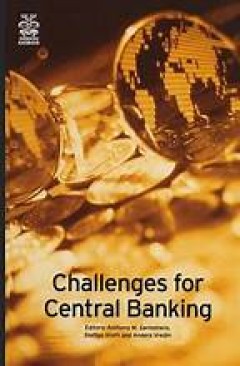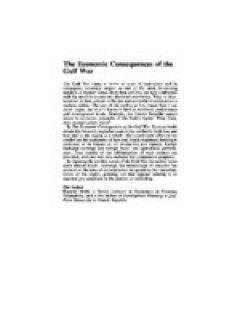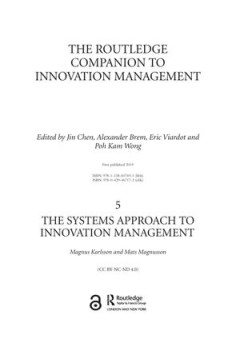Filter by

Urbanization and Locality Strengthening Identity and Sustainability by Site-…
Based on a discussion of conflicts in the urbanization process, this book provides theoretical and practical solutions for the preservation and development of urban localities. On the basis of informative case studies, it reveals the similarities and unique aspects of urbanization in Germany and China. The process of urban growth and the future trend of locality and urbanization are also examin…
- Edition
- -
- ISBN/ISSN
- 978-3-662-48494-4
- Collation
- -
- Series Title
- -
- Call Number
- -

Cultural Mobilities Between Africa and the Caribbean Pricing Carbon Emissions
Pricing Carbon Emissions provides an economic critique on the utopian idea of a uniform carbon price for addressing rising carbon emissions, exposing the flaws in the economic propositions with a key focus on the EU’s Emissions Trading System (ETS). After an Executive Summary of the contents, the chapters build up understanding of orthodox economics’ role in protecting the neoliberal par…
- Edition
- -
- ISBN/ISSN
- -
- Collation
- -
- Series Title
- -
- Call Number
- -

Sustainable Development in India
This book explores and interrogates the food–water–energy nexus, arguably the most crucial factor in sustaining India’s economic development. The book sheds light on different experiences faced in states across India, including the consequences of electricity tariff reforms and related policies on irrigated agriculture. Part 1 focuses on the historical development of agriculture and so…
- Edition
- -
- ISBN/ISSN
- -
- Collation
- -
- Series Title
- -
- Call Number
- -

Challenges for Central Banking
It may be possible to claim that, generally speaking, central banks around the world have never before held such a central and well-respected position in their respective countries as they hold now. Their tasks seem to be reasona bly well defined and the mandate given to them to guarantee price stability has so far worked more successfully than was perhaps expected. Inflation is lower than it…
- Edition
- 1
- ISBN/ISSN
- 978-1-4757-3306-8
- Collation
- Bisnis
- Series Title
- -
- Call Number
- 650

Introduction to Central Banking
This open access book gives a concise introduction to the practical implementation of monetary policy by modern central banks. It describes the conventional instruments used in advanced economies and the unconventional instruments that have been widely adopted since the financial crisis of 2007–2008. Illuminating the role of central banks in ensuring financial stability and as last resort len…
- Edition
- 1
- ISBN/ISSN
- 978-3-030-70884-9
- Collation
- Banking
- Series Title
- SpringerBriefs in Quantitative Finance
- Call Number
- 332

The Economic Consequences of the Gulf War
The Iran-Iraq War were one of the longest and most devastating uninterrupted wars amongst modern nation states. It produced neither victor nor vanquished and left the regimes in both countries basically intact. However, it is clear that the domestic, regional and international repercussions of the war mean that 'going back' is not an option. Iraq owes too much to regain the lead it formerly hel…
- Edition
- Ed. 1
- ISBN/ISSN
- 9780415052955; 9781138968226
- Collation
- -
- Series Title
- -
- Call Number
- 330 MOF e

5 The Systems Approach to Innovation Management
The environment in which a company or organization operates today can be characterized by accelerating change, the globalization of markets, the emergence of new technologies and competitors, new regulatory requirements and ever more demanding users and citizens. In this environment, the ability to innovate becomes a key success factor for most organizations. They seek to continuously create an…
- Edition
- -
- ISBN/ISSN
- 9781138244719
- Collation
- -
- Series Title
- -
- Call Number
- 650

EIB Working Paper 2021/12: Complementarities in capital formation and productio
Using macro and firm-level data, this paper investigates the complementarities between investment in different types of tangible assets such as machinery and buildings, and intangible assets such as software, training of employees, and business process improvements. It finds that investment in different assets types tends to be complementary, improving firm performance. Policy measures should a…
- Edition
- Ed. 1
- ISBN/ISSN
- 9789286151514, 9789286151514
- Collation
- -
- Series Title
- -
- Call Number
- 330 EIB e

Urban Transportation and the Environment Issues, Alternatives and Policy Ana…
The book deals with urban transportation planning in light of environmental sustainability and social equity. It begins with a review of the Indian urban transportation system and the issues surrounding it, and discusses the alternatives and policy directions that are being considered. It examines all the environmental issues arising out of transportation as a sector and assesses the alternativ…
- Edition
- -
- ISBN/ISSN
- 978-81-322-2313-9
- Collation
- -
- Series Title
- -
- Call Number
- -

Urban Land Economics
This book covers the main aspects of regional and urban economics and presents state-of-the-art theories in a comprehensive and concise way. The book will be of interest to undergraduates in business and economics and covers specific areas such as real estate, urban and regional planning and geography and development studies.
- Edition
- -
- ISBN/ISSN
- 978-3-319-15320-9
- Collation
- -
- Series Title
- -
- Call Number
- -
 Computer Science, Information & General Works
Computer Science, Information & General Works  Philosophy & Psychology
Philosophy & Psychology  Religion
Religion  Social Sciences
Social Sciences  Language
Language  Pure Science
Pure Science  Applied Sciences
Applied Sciences  Art & Recreation
Art & Recreation  Literature
Literature  History & Geography
History & Geography